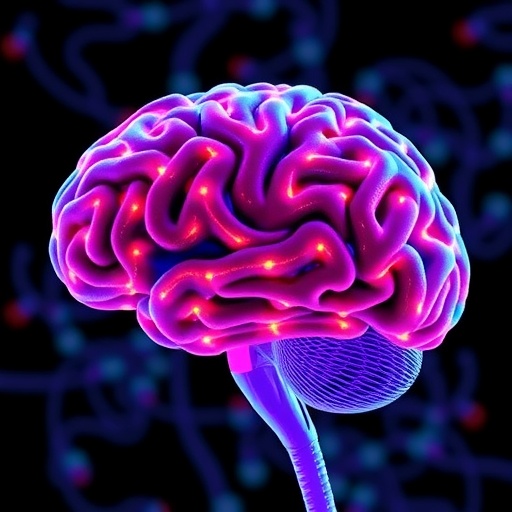More than a decade ago, a groundbreaking discovery emerged from the realm of diabetes research, revealing that diabetic ketoacidosis (DKA), a life-threatening acute complication associated with type 1 diabetes, could be reversed using the hormone leptin—even in the absence of insulin. This initially surprising finding has recently been revisited and expanded upon in an illuminating analysis published in The Journal of Clinical Investigation, shedding light on the brain’s critical and previously underappreciated role in this disease process and opening potential new therapeutic avenues.
Diabetic ketoacidosis arises when the body experiences a severe insulin deficiency, leading it to rapidly degrade fat tissue to produce alternative fuel sources in the form of ketone bodies. This metabolic shift, while designed as an emergency energy provision system, results in dangerously elevated blood sugar and acid levels that can cause rapid physiological deterioration and, if untreated, fatality. Conventionally, physicians have addressed DKA by administering insulin to halt this catabolic state. However, recent research challenges this paradigm by implicating the brain—specifically, its interpretation of hormonal signals—in driving this pathological cascade.
The central question posed by researchers is how the brain perceives and reacts to metabolic signals in the setting of insulin absence. Leptin, a hormone produced by adipose tissue, communicates to the brain the state of the body’s energy reserves. Under normal circumstances, leptin entering the bloodstream crosses into the hypothalamus, a brain region integral to regulating appetite, energy expenditure, and glucose metabolism. When leptin levels fall, the hypothalamus interprets this as a sign of energy scarcity, triggering neural circuits that promote glucose and ketone production to ensure survival.
Dr. Michael Schwartz, a senior author and professor at the University of Washington School of Medicine, explains that in type 1 diabetes where pancreatic insulin secretion is impaired, the brain is erroneously informed that the body is starved of fuel, largely due to the reduced circulating leptin levels. This miscommunication leads the hypothalamus to initiate a counter-regulatory response, mobilizing endogenous glucose production and ketogenesis, thereby exacerbating hyperglycemia and ketoacid buildup. This new understanding reframes diabetic ketoacidosis from a purely peripheral insulin disorder to one with a pivotal neuroendocrine component.
The seminal experiments conducted in 2011 by Schwartz and his team illuminated this mechanism through elegant animal models. They introduced leptin directly into the brains of insulin-deficient rats and mice, with the expectation that little change would occur without insulin. Astonishingly, after several days, these animals exhibited normalized blood glucose and ketone levels despite persistent insulin deficiency. This remarkable effect persisted robustly over time. Attempts to artificially manipulate blood sugar levels resulted in a dynamic homeostatic correction, suggesting the brain had established a new set point for glucose and ketone regulation independent of insulin.
The implications of these findings are profound. For decades, therapeutic strategies for type 1 diabetes have focused exclusively on replacing or mimicking insulin function to control blood glucose. However, this research points towards the brain’s role as a master regulator of metabolic homeostasis, capable of overriding peripheral insulin deficiencies. By modulating leptin signaling pathways and neural circuits within the hypothalamus, it may be possible to mitigate or even prevent the dangerous metabolic chaos characteristic of diabetic ketoacidosis without the need for exogenous insulin administration.
This paradigm shift is gaining momentum in the scientific community after years of skepticism and dismissal. Schwartz emphasizes that the initial discovery was largely ignored, yet the accumulation of evidence now clarifies how critical leptin-brain interactions are in diabetes pathogenesis. The next step planned by the research team is to seek FDA approval for human clinical trials, exploring leptin-based interventions for stabilizing glycemia and suppressing ketone production in patients with type 1 diabetes.
Co-author Dr. Irl Hirsch, a clinician and long-time expert in diabetes treatment who also lives with type 1 diabetes, echoed the excitement about leptin’s potential. He underscores that while insulin’s discovery remains one of the most significant medical achievements, the leptin pathway represents an innovative leap forward—a complementary or alternative treatment that could lessen the dependency on frequent insulin injections and continuous glucose monitoring, vastly improving patients’ quality of life.
The underlying physiology suggests that if neurons within the hypothalamus can be convinced that energy stores are sufficient, or if the circuits responsible for stimulating glucose and ketone biosynthesis are inhibited, the dangerous feedback loop leading to severe hyperglycemia and ketoacidosis can be disrupted. This neurocentric view contends that the brain is not just a passive responder but an active driver in the disease’s metabolic derangements.
Schwartz’s research, partially funded by the National Institutes of Health and the Department of Defense’s Medical Research Program, further challenges the long-held notion that insulin deficiency alone is the cause of diabetic ketoacidosis. Instead, it proposes that the brain’s misinterpretation of leptin signals critically contributes to uncontrolled diabetes progression, suggesting new therapeutic targets that focus on neuroendocrine regulation.
Should leptin-based treatments prove effective and safe in human subjects, this would herald a transformative shift in diabetes management. By moving beyond the exclusive reliance on insulin replacement, therapies could engage the brain’s metabolic control centers, potentially simplifying treatment regimens and alleviating the physical and psychological burdens endured by people with type 1 diabetes and their caregivers.
In sum, this emerging body of research redefines diabetic ketoacidosis as a neuroendocrine disorder influenced profoundly by leptin-brain signaling pathways. It underscores the importance of the hypothalamus’s role in maintaining metabolic balance and invites a future where manipulating central nervous system circuits could revolutionize the treatment of autoimmune diabetes and its acute complications.
Subject of Research: Animals
Article Title: An unexpected role for the brain in the pathogenesis of diabetic ketoacidosis
News Publication Date: 1-Aug-2025
Web References:
DOI: 10.1172/JCI196357
CDC on Diabetic Ketoacidosis
Leptin and hypothalamus overview (NCBI)
Hypothalamus and leptin study
References:
Journal of Clinical Investigation, 2025, Schwartz M. et al.
Keywords:
Type 1 diabetes, Insulin, Metabolic disorders, Hormones




